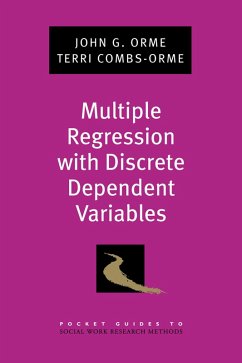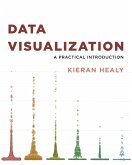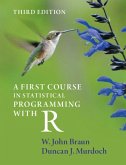Most social work researchers are familiar with linear regression techniques, which are fairly straightforward to conduct, interpret, and present. However, linear regression is not appropriate for discrete dependent variables, and social work research frequently employs these variables, focusing on outcomes such as placement in foster care or not; level of severity of elder abuse or depression symptoms; or number of reoffenses by juvenile delinquents in the year following adjudication. This book presents detailed discussions of regression models that are appropriate for a variety of discrete dependent variables. The major challenges of such analyses lie in the non-linear relationships between independent and dependent variables, and particularly in interpreting and presenting findings. Clear language guides the reader briefly through each step of the analysis, using SPSS and result presentation to enhance understanding of the important link function. The book begins with a brief review of linear regression; next, the authors cover basic binary logistic regression, which provides a foundation for the other techniques. In particular, comprehension of the link function is vital in order to later interpret these methods' results. Though the book assumes a basic understanding of linear regression, reviews and definitions throughout provide useful reminders of important terms and their meaning, and throughout the book the authors provide detailed examples based on their own data, which readers may work through by accessing the data and output on companion website. Social work and other social sciences faculty, students, and researchers who already have a basic understanding of linear regression but are not as familiar with the regression analysis of discrete dependent variables will find this straightforward pocket guide to be a terrific boon to their bookshelves. For additional resources, visit http://www.oup.com/us/pocketguides.
Dieser Download kann aus rechtlichen Gründen nur mit Rechnungsadresse in A, B, BG, CY, CZ, D, DK, EW, E, FIN, F, GR, HR, H, IRL, I, LT, L, LR, M, NL, PL, P, R, S, SLO, SK ausgeliefert werden.









